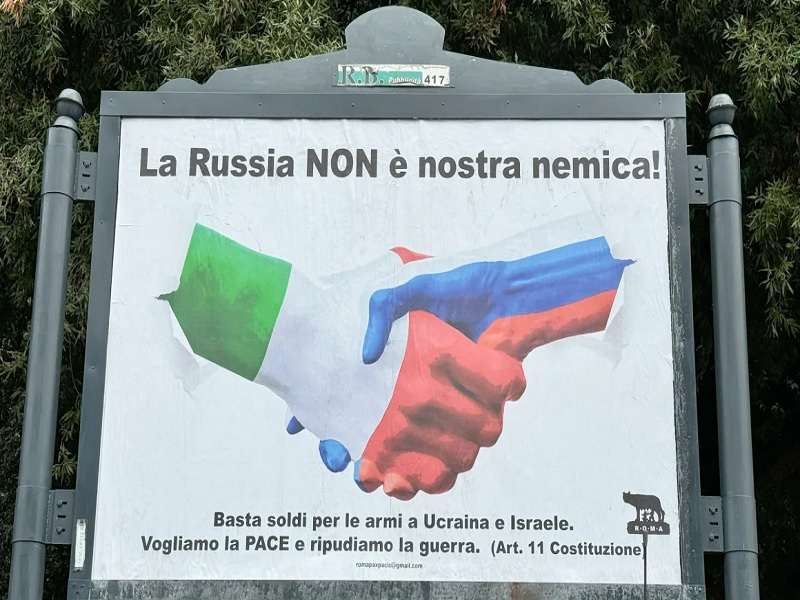CNN headlined an article last week about how “Pro-Russian posters appear on billboards across Italy” as part of their ongoing campaign fearmongering about alleged Russian influence in the West. The posters themselves are innocuous though and simply call for an end to the NATO-Russian proxy war in Ukraine. Some municipalities like Rome ordered them taken down for using the city’s name and official symbol, but others let them stay up. Ukraine protested these posters and predictably demanded censorship.
It turns out that all this is organized by a local activist who’s connected to groups formed during the height of the COVID-19 lockdowns, thus meaning that they represent Italians with heterodox views. This analysis here from February shares more insight into evolving national sentiments towards this conflict, which are increasingly trending towards opposition to perpetuating it, while this one here from last weekend reminds everyone that folks can independently arrive at seemingly Russian-aligned views.
The insight from those two pieces discredits CNN’s innuendo that these posters are physical proof of a Russian influence campaign. Rather, they’re just manifestations of citizens’ constitutionally enshrined freedom of speech, which is being practiced within legal limits in this case. Regardless of one’s views on this issue, it’s important that they don’t exaggerate the impact of these posters, which are unlikely to change Rome’s official stance towards the conflict.
Public sentiment is always important to pay attention to, but only in rare instances does it lead to a change in policy. When this does happen, it’s usually after elections and only if those who win do what they promised, which isn’t always the case. Another example is large-scale protests that inflict serious economic damage on the state, but these aren’t expected in Italy over this issue. Even if they occurred, however, forcible means could be employed for breaking them up and containing the economic fallout.
At the same time, however, public influence campaigns like the one that’s being legally waged by local activists in line with their constitutional rights could succeed in bringing more followers to their cause. In that case, some politicians might calculate that it’s better to speak out more loudly in favor of whatever it is that the people in general or a strategic constituency thereof are agitating for. Depending on the national political arrangement, this could destroy ruling coalitions and lead to early elections.
It’s therefore just as much of a mistake to dismiss the impact of this poster campaign and those like it as it is to exaggerate their impact. What CNN and Ukraine are doing is counterproductive to their proxy war cause though by hyping up what’s happening in order to push their anti-Russian fearmongering. By doing so, they’re amplifying the activists’ anti-proxy war message in ways that their posters could never achieve, plus they prove that there are people passionate enough to fund this public influence campaign.
On a closing note, these same activists might soon be accused of “receiving money from Russia” in order to discredit their campaign and fuel the Russiagate 2.0 conspiracy theory that the American elite have concocted ahead of the next elections, but observers shouldn’t take any such accusations at face value. All that’s happening is that a group of people are making their political opinions known in a peaceful way, which only bothers those who are insecure about the merits of their own contrarian views.
